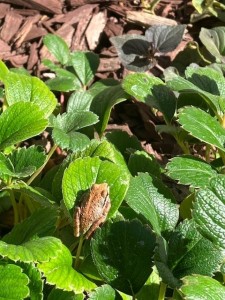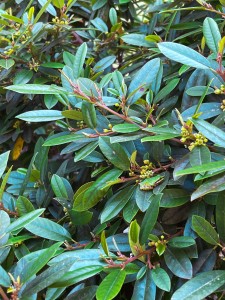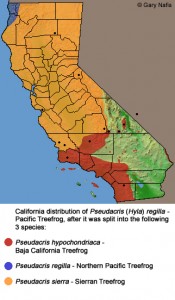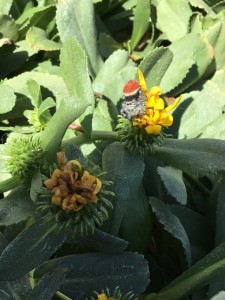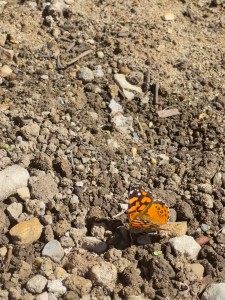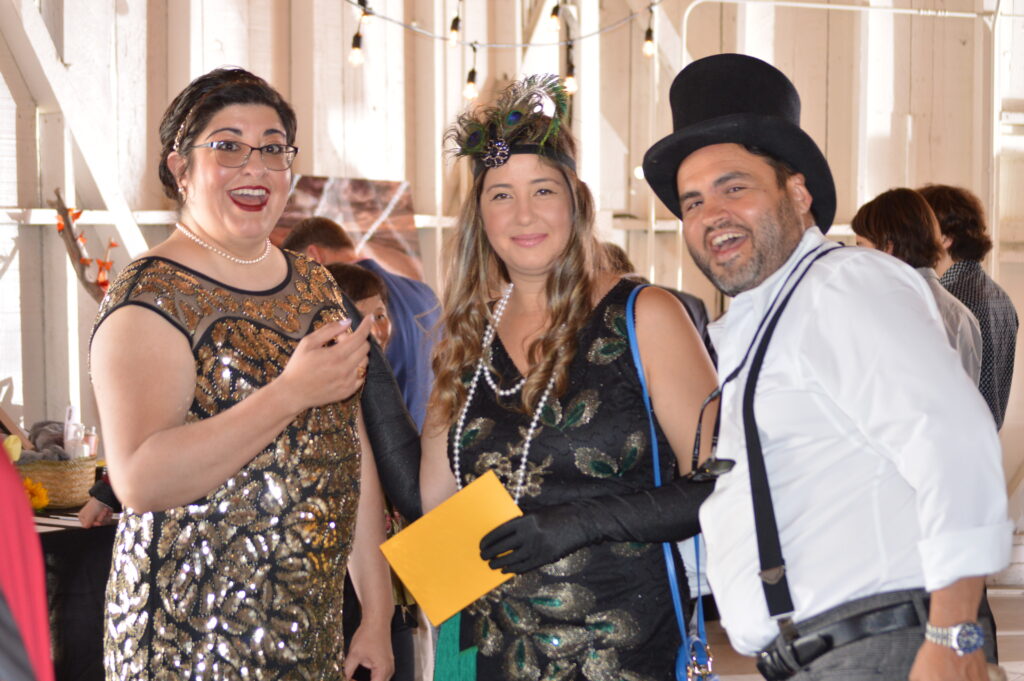
The Dunes Center is Crawling with Critters!
Did you know that you can find all kinds of wildlife at the Dunes Center?
The Dunes Center is a Certified Wildlife Habitat, so next time you visit, keep an eye out for some of these insects and animals that call us "home." Our staff and fellows work to document and identify all of the flying, buzzing, and hopping visitors that come by the Dunes Center. Check out some of the creatures we've been seeing lately!
California Tree Frogs
There are three tree frogs in California, the Northern Pacific Tree Frog, the Sierra Tree Frog, and the Baja California Tree Frog. The distinction with these tree frogs is their location. Since the Dunes Center is in Santa Barbara County, that makes these little friends Baja California Tree Frogs(Pseudacris hypochondriaca hypochondriaca), but if you were to find one at Oso Flaco Lake, it would be a Sierra Tree Frog (Pseudacris sierra).
.
(californiaherps.com/identification/frogsid/treefrogs.id.html)
Purplish Copper
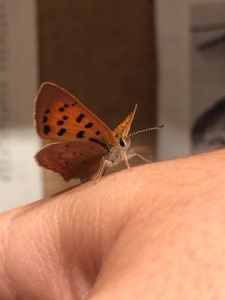
Scientific Name: Lycaena helloides
This butterfly comes from the Lycaenidae family. Females’ wings are orange on the dorsal side, while the males have a more purple iridescent color.
Red Admiral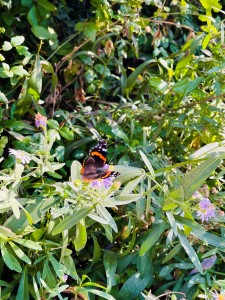
Scientific Name: Vanessa atalanta
The Red Admiral is another butterfly that can sometimes be mistaken for a Monarch butterfly thanks to its bright orange and black coloring. This butterfly is highly territorial, and females will only mate if a male has his own territory.
Red Back Jumping Spider
Scientific Name: Phidippus johnsoni
This little guy was hanging out in the Dunes Center Garden for about a week! These spiders like to create silk nests under rocks or wood and they will stay there at night. They feed on a wide variety of insects and sometimes the females will eat the males!
Painted Lady
Scientific Name: Vanessa cardui
This migrating butterfly could be easily mistaken for a Monarch, but one of the key differences is on the wings. The wings of the Painted Lady are actually brown or gray on the ventral side. The Painted Lady butterfly is the most widespread butterfly! It lives on every continent except Australia and Antarctica. The Painted Lady caterpillar often dines on plants which contain toxic compounds, making the caterpillar inedible to some of its predators.
Wooly Caterpillars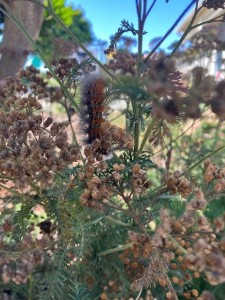
Most folks call caterpillars that look hairy, like this one, "wooly bears." Can you guess what this caterpillar's name is? Hint: the moth it becomes is very light in color.
Upcoming Events
Nipomo, 93444 United States
Newsletter
Our newsletter keeps you up to date with the latest information about our exhibits, upcoming events, and programs.


